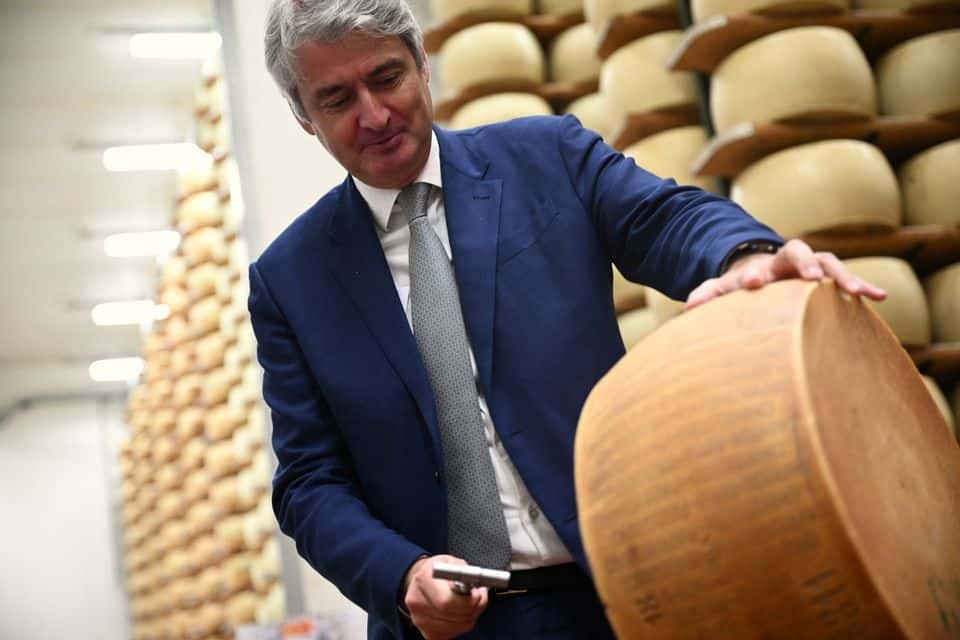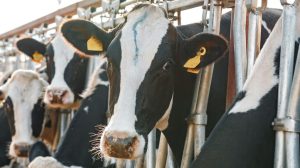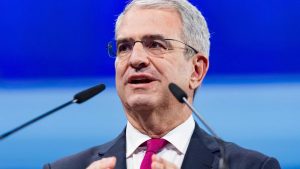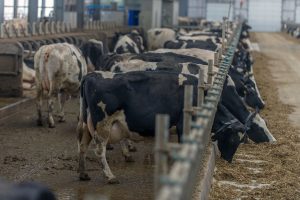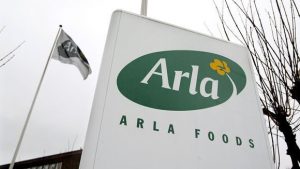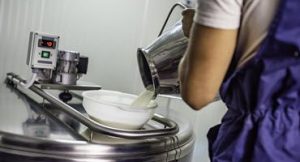
Over the course of three generations, the secretive Besnier family has grown what began as an artisanal cheesemaking operation in northwestern France into Groupe Lactalis, one of the largest global food companies. The three siblings who own the closely held manufacturer — Jean-Michel, 55, Emmanuel, 52, and Marie, 42 — are now worth a combined $14.7 billion, according to the Bloomberg Billionaires Index.
Their wealth eclipses the milk-based fortunes of Canada’s Lino Saputo and the US’s Jim Leprino, but remain far behind France’s top-ranking luxury tycoon Bernard Arnault, worth $205 billion, and L’Oreal SA heiress Francoise Bettencourt Meyers at $94.7 billion.
The Besnier fortune illustrates the global reach of a clutch of France’s ultra-rich, who oversee firms built from small operations into industry giants through expansion and acquisitions. The country is increasingly dominating the luxury sector through family-controlled companies such as LVMH and Hermes International, while the Dassault descendants hold sway in aviation and the Saades in shipping.
For the Besniers, growth has also brought more scrutiny. Lactalis began publishing financial results in 2018, the year a crisis over salmonella-tainted baby formula put Emmanuel, the chief executive officer, in a political and media firestorm. In February, the company was charged for failure to recall, aggravated deception and involuntary injuries in France and ordered to set aside €600 000 pending the outcome of the case.
‘Eroded’ margins
In recent weeks, pressure has increased over inflation, with the French government encouraging food manufacturers to pass on lower commodity prices for their products. “We need to see this in supermarkets as soon as possible,” Prime Minister Elisabeth Borne said last week.
Inflation helped drive Lactalis revenue up 28% last year to €28.3 billion, while higher costs pushed net profit down 14% to €384 million and squeezed returns to 1.4%, according to a statement.
“Our margins have been significantly eroded,” Christophe Piednoel, head of communications at Lactalis, said April 21 on RMC radio. “We hope we can lower prices in the fourth quarter.”
The manufacturer has encountered difficulties passing on more than 20% higher costs despite significant efforts to raise competitiveness, Lactalis said. Still, the company highlighted it’s become the world’s 10th-biggest food company by sales, just ahead of rival Danone SA and behind Heineken NV.
Lactalis has come a long way from 1933, when founder Andre Besnier made his first dozen or so camembert cheeses — 17 to be exact — using milk collected near his western hometown of Laval, where the company is still based. He expanded over the years into products like butter and cream. His son, Michel, took over in 1955 after Andre died, creating the President brand, exporting brie to the US and making the first acquisitions.
Deal spree
When Michel died suddenly in 2000, Emmanuel took the helm at age 29 and has been chairman and CEO since. He’s overseen some 100 acquisitions worth billions of dollars, ranging from Italian mozzarella-maker Galbani to infant formula and yogurt businesses. Emmanuel’s brother, Jean-Michel, and sister, Marie, are directors.
Lactalis climbed to the top of Rabobank’s Global Dairy Top 20 annual ranking in 2021, leapfrogging Nestle SA after agreeing to buy Kraft Heinz Co.’s natural cheese business for $3.2 billion. The French company got the Cracker Barrel and Knudsen brands in that deal, but not Philadelphia, Velveeta and Cheez Whiz. Some of the top milk companies are cooperatives like Dairy Farmers of America and Fonterra.
Lactalis is working on undoing a reputation for being tight-fisted with farmers. It said it paid higher prices than competitors for milk last year in a bid to help producers combat inflation.
“In 2023, we won’t lower the price we are paying to milk producers,” Piednoel said in the RMC interview.
